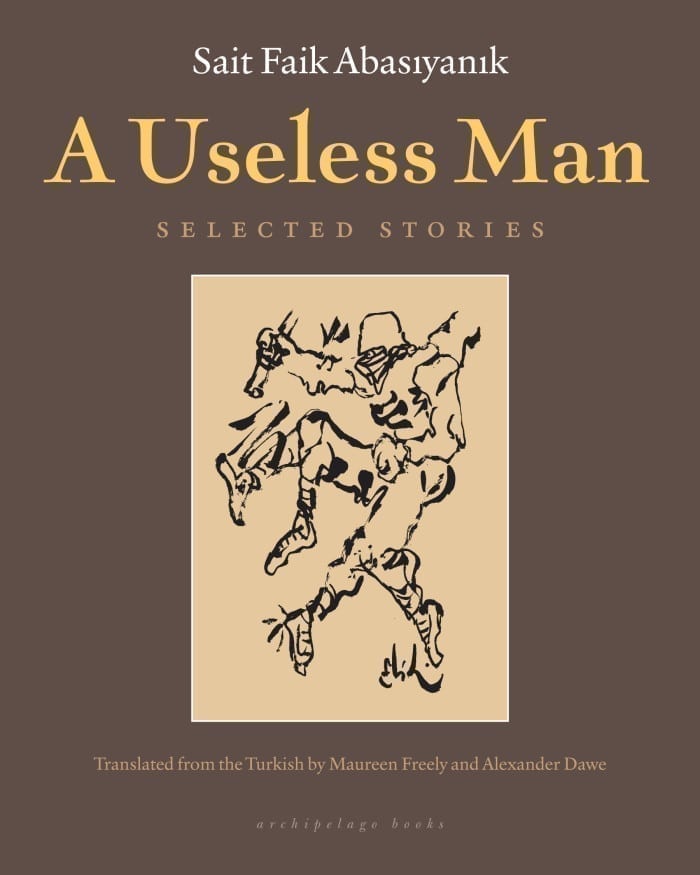Praise
Brimming with life and intelligence... Sait Faik is a masterful storyteller and a passionate flaneur. He has the keenest eye and the softest heart for quirkiness, loneliness and love. It feels like nothing can surprise him and yet his writing is utterly riveting and full of surprises.
Reading these stories by Sait Faik feels like finding the secret doors inside of poems. Little moments—here one about milk, there one about death—open out into corridors of narrative, leading to effects and endings that are consistently both gentle and cutting, simultaneously honest and surprising. A distinctive, humane voice worthy of our serious attention.
Turkey's greatest short-story writer.
These stories unfold like secrets or hallowed gossip passed between friends and neighbors. Each one’s telling—intimate and mysterious, earthy and luminous—is propelled universal by a striking glimpse of the human heart. Set in post-Ottoman Istanbul, Sait Faik’s characters span a rich cultural array, including Turkish fishmen, Greek Orthodox priests, factory girls, thieves, simit sellers and all manner of lovers. Though these stories take us to a specific place and time, Sait Faik’s unflinching eye lands us precisely in our own backyard.
Elliptical and unexpected, sometimes lyrical, sometimes earthy, using elemental language and a stark, Chekhov-like simplicity, these loving tributes to the unnoticed loners on the margins of life reveal the world through Sait Faik's eyes in all its brutality and loneliness and beauty.
Sait Faik has had an influence on not only me but on almost all contemporary Turkish writers. [He] was one of the earliest writers who screamed in Turkish that he would have died if he was not able to write.
Like Robert Walser’s walking stories, these meditations on natural beauty and village life often dance around an ugly truth. Lost innocence, unrequited love, misanthropy. Turn down the wrong street and there they are, crystallized in the form of vegetables left out to dry in the cornice of a building. And the more beguiling and bucolic the tales start out, the less prepared we are when, in the words of translators Maureen Freely and Alexander Dawe, "he pulls the carpet out from underneath our feet."
Abasıyanık’s language blends the prosaic with the magical [...], which adds vivid flourishes to his more opaque, fractured and disorientating episodes and portraits. It isn’t always easy to get a handle on these stories, but it is not difficult at all to be lulled and entranced by their strangeness.
This is a magnificent collection of simple tales celebrating humanity and the fringes of society. It is stunning to think that such a celebrated writer is only coming to the English speaking world some sixty years after his death. One of my favourite short story collections of all time, I am grateful to Archipelago Books for bringing the edges of Turkish society into my world.
He was the beloved child of Istanbul.
When I think of Istanbul I think of Sait Faik.
One of our great short story writers and a wonderful poet.
Sait Faik's work shaped the course of twentieth century Turkish literature.
Abasıyanık’s status as a Turkish national treasure is utterly unsurprising. Chekhov-like in his ability to create sweet, poignant moments from the mundane and melancholy, Abasıyanık is able to fashion even a mother’s death into a comforting embrace... Abasıyanık’s prose is never heavy-handed, as he expertly invokes the colours, smells and tastes of his native Turkey.
[A] subtle stylist and shrewd observer who, through his own experiences...left an unforgettable panorama of the daily life of Istanbul during his lifetime.
This fascinating collection of short stories from Turkey portray a world of the ordinary and mundane but in such a way as to stimulate the reader's imagination and leave them wanting more. Each story is like a snapshot in time and the evocative description and slightly mysterious subject matter leaves behind a sense that we have scratched the surface of a vast and private world that we can only ever experience through reading... these stories inspire, amuse and move in equal measure... this is a privileged glimpse into lives unknown and worlds rarely visited. Wonderful.
Abasıyanık was a fruitful author. His writing celebrates the natural world . . .


